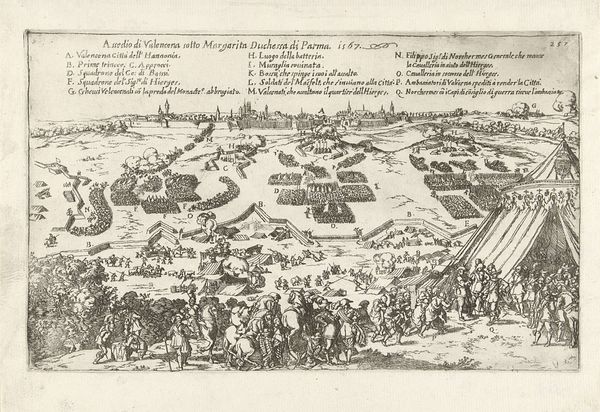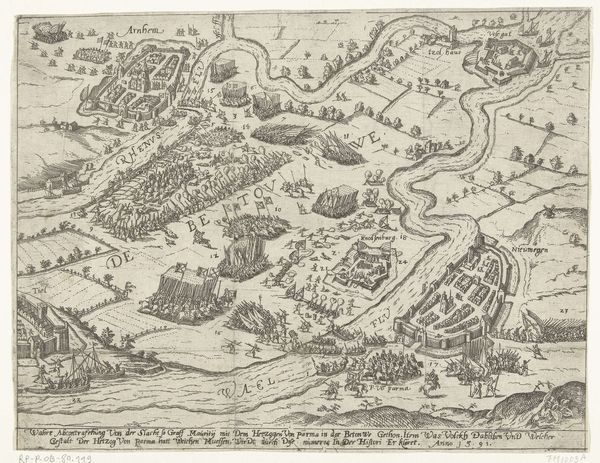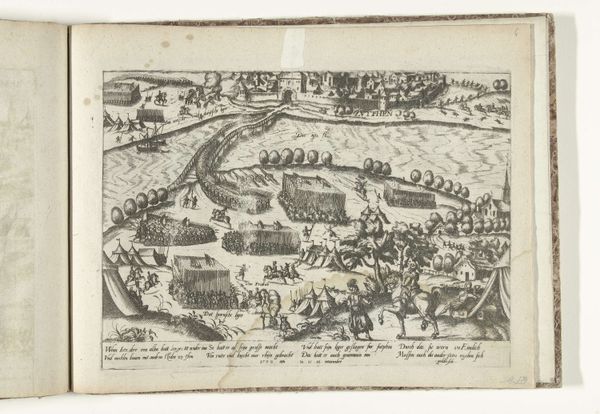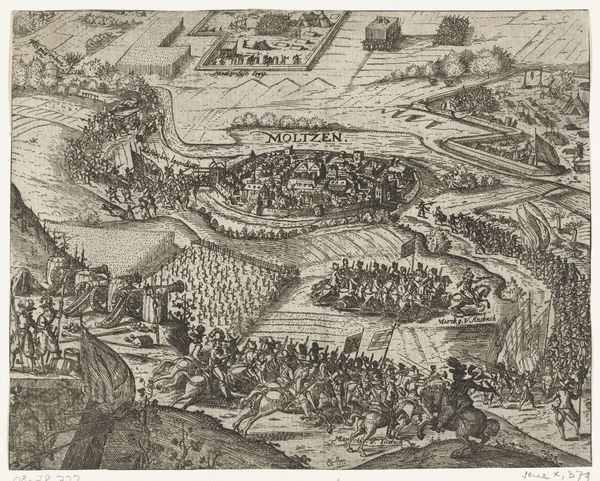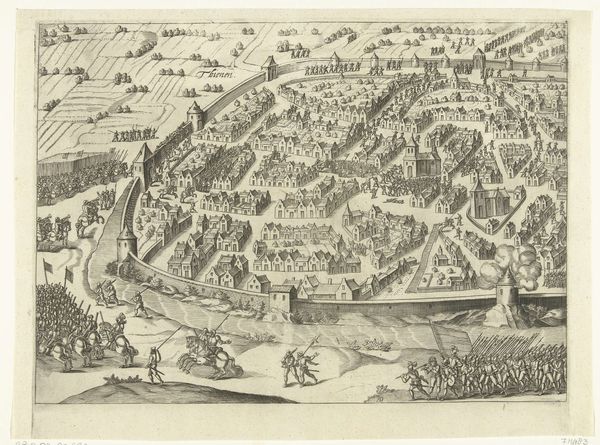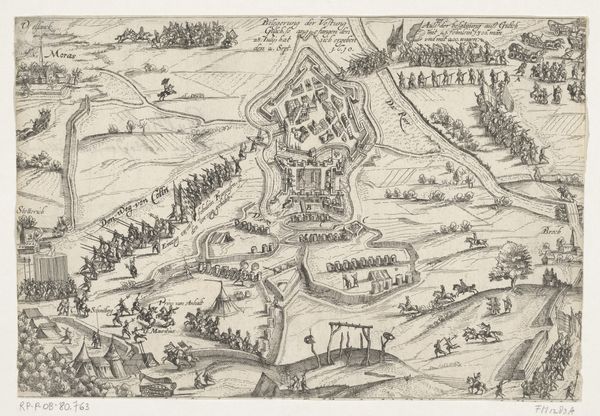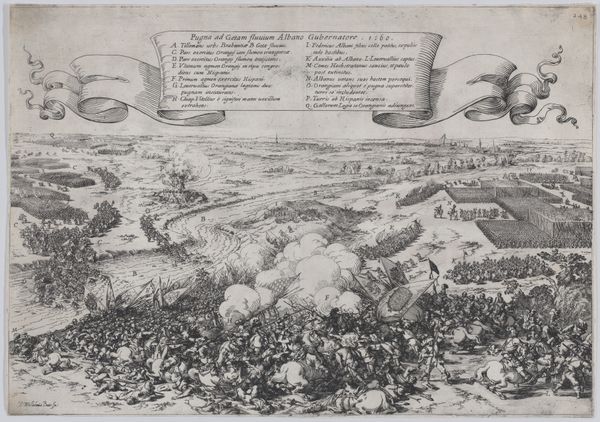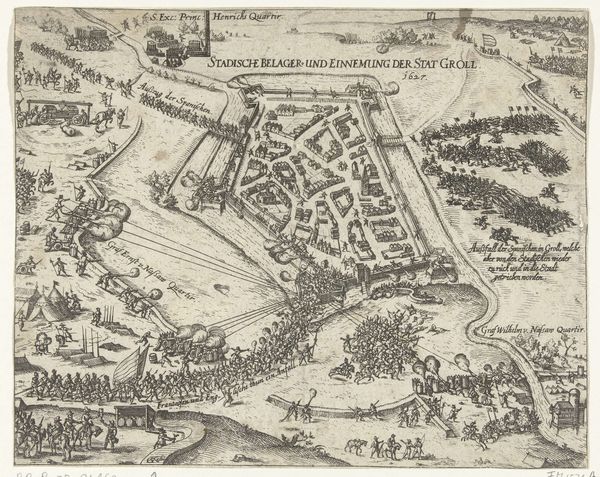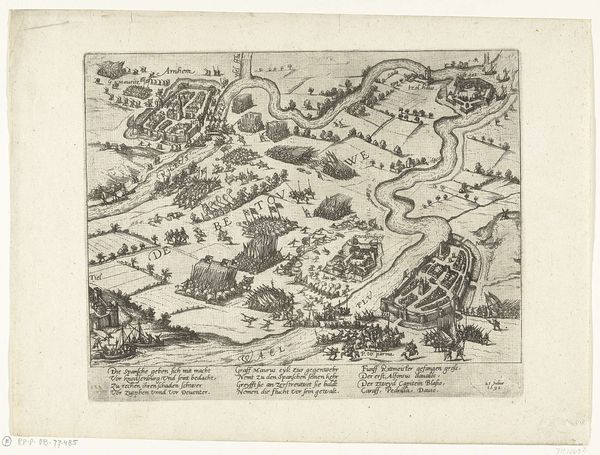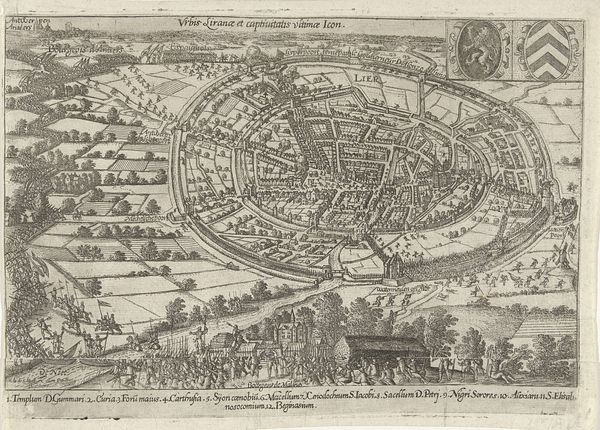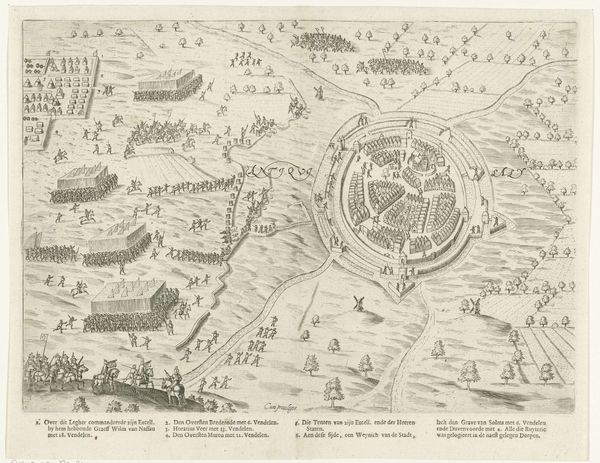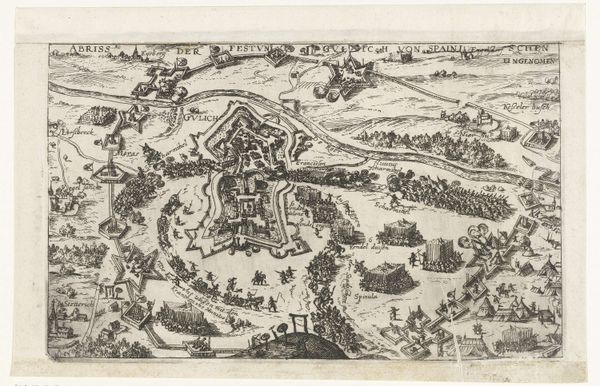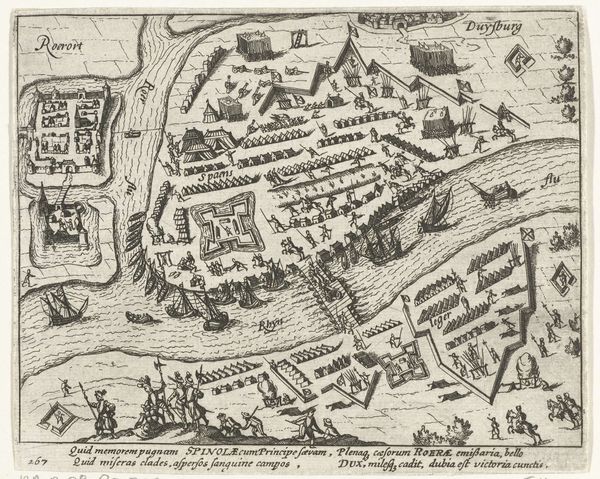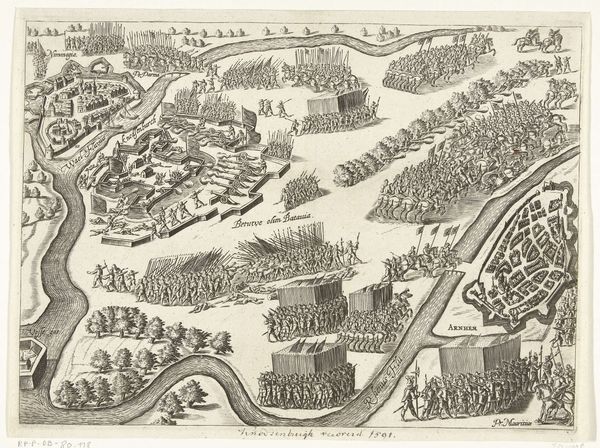
print, engraving
#
baroque
# print
#
pen illustration
#
old engraving style
#
cityscape
#
history-painting
#
engraving
Dimensions: height 257 mm, width 330 mm
Copyright: Rijks Museum: Open Domain
Editor: This print, "Siege and Conquest of Lingen, 1597," by Bartholomeus Willemsz. Dolendo, dates from the early 17th century and is currently at the Rijksmuseum. It shows a bird’s eye view of a city under siege. The level of detail is astounding, especially in rendering all of the soldiers and fortifications. What jumps out to you? Curator: Indeed, what you see is an idealized rendering of military might during the Dutch Revolt. It’s important to remember that prints like these served a key propaganda function. How do you think this image was used to shape public opinion about the war? Editor: I suppose by showcasing the organization and sheer scale of the Dutch forces, it projected an image of strength and inevitability? Making it look like success was guaranteed? Curator: Precisely. Consider the visual emphasis on order and control—the neatly arranged soldiers, the geometric precision of the fortifications. This was meant to convey not just military superiority, but also the righteousness of their cause, to inspire confidence both at home and abroad. The artist here isn’t just recording history; he’s crafting a specific narrative. Where would images like these have circulated? Editor: Perhaps in pamphlets, newspapers, or even displayed publicly to rally support for the Dutch cause against Spanish rule? I’m beginning to see that it is more than a simple depiction; it is a carefully constructed argument. Curator: Exactly! And remember, the Rijksmuseum itself plays a role in continuing to present this version of history. The image reminds us that even seemingly objective historical records are deeply entwined with social, cultural, and political agendas. Editor: This makes me consider the museum as not only an archive but also as a stage upon which history is constantly reinterpreted. It’s been quite revealing to see beyond the surface details of this piece and consider its deeper impact.
Comments
No comments
Be the first to comment and join the conversation on the ultimate creative platform.
